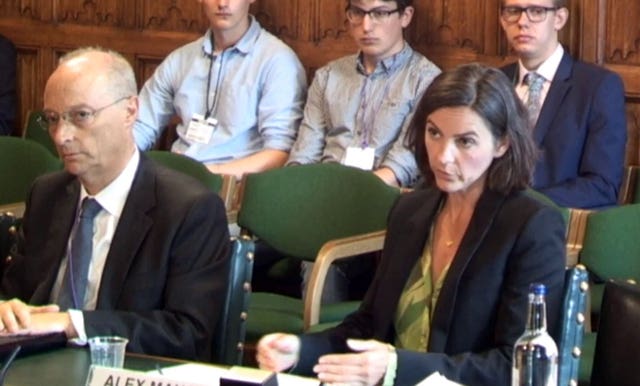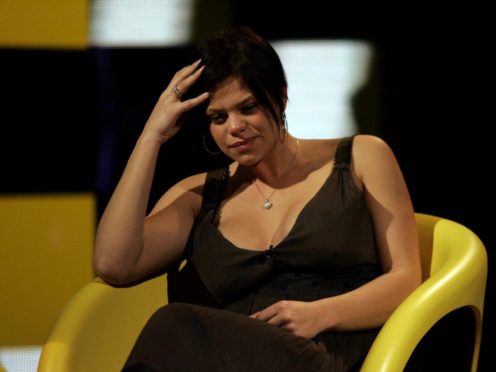Channel 4’s chief executive has said scenes shown on programmes such as Big Brother more than 10 years ago would not be deemed acceptable now, and the broadcaster would not allow them to be aired.
Alex Mahon also said it would be unlikely that the reality TV show would be commissioned by Channel 4 today as it would not feel “fresh”.
Ms Mahon told the Digital, Culture, Media and Sport (DCMS) Committee inquiry into reality TV that it was “a mistake” to broadcast some scenes involving Big Brother contestant Jade Goody on Channel 4.

She said the way Goody was treated in the press at the time, and how she was shown on the programme, would not happen today because of the “much stronger contributor care protocols” they have in place.
Goody was a contestant on Big Brother – which first aired on Channel 4 before it moved to Channel 5 – in 2002, and in 2007 took part in the celebrity edition of the show.
She became embroiled in a well-documented race row during her second appearance, attracting thousands of complaints about the treatment of Indian contestant Shilpa Shetty.
Questioned by DCMS Committee chairman Damian Collins on the boundaries for commissioning such reality TV programmes in today’s broadcasting landscape, Ms Mahon said she believes public tastes are changing.
Referring to a documentary Channel 4 will air about the life of Goody, Ms Mahon said: “When you look back at that, when you look back at what happened to Jade, how she was treated in the tabloid press, what was put on air, I would say that public taste has moved the other way – there are things in that show that we would probably question whether we would do now. In fact Ofcom upheld a point about the show.”
Goody died in 2009 after being diagnosed with cervical cancer in 2008.
Ms Mahon said the support and protocols put in place by Channel 4 and the expectations of society are “higher now”.
Ms Mahon, who did not work at Channel 4 at the time, added: “I think clearly it was a mistake to broadcast racist and offensive material, and that was upheld at the time.
“If you think about how that show worked and what the contestants were pushed to on it, I think the care protocols we have in place nowadays wouldn’t allow things to go as far as they did.”
She went on: “There were ways, in what went on in the press and what went on in television then, about the cycle about how people would be discussed in the press, that I don’t think society would tolerate now.
“So I think the expectations of the audience and on ourselves as broadcasters and producers has moved to where we have much stronger contributor care protocols in place and we wouldn’t let those things occur now.”
Asked if Channel 4 would commission Big Brother now, Ms Mahon said: “It’s hard to answer because the environment has probably changed since; it’s really hard to say when faced with that programme now.
“Would that programme even be innovative today compared to what it was in 2000? I think shows that give you that exposure to people’s lives, similar shows, are on air today.”

Ms Mahon said Channel 4’s programme The Circle is “our re-imagining of what that might be for the modern day”.
“I don’t think a show that was come up with 20 years ago would feel fresh on television today,” she added.
Big Brother aired on Channel 4 for 10 years before moving to Channel 5. The series came to an end on Channel 5 last year.
Earlier in the committee inquiry session, Ms Mahon said Channel 4 did not make programmes involving members of the public merely because they are cheap, and to “fill the schedules”.
She said there is a “huge public appetite” for programmes that show “different groups of people doing things in society”, such as observational programmes and reality TV.
Ms Mahon also said Channel 4 would never “want to take risks with the welfare of our contributors” on reality programmes.
